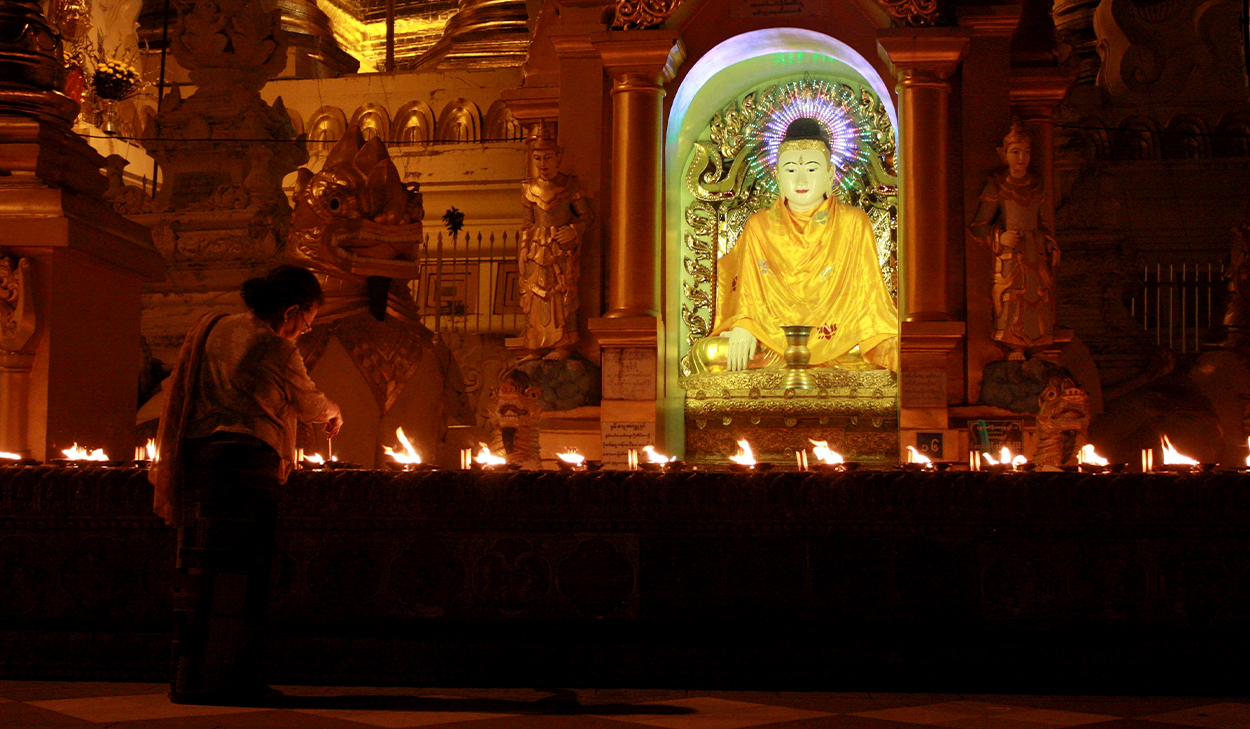
Early in the year, many Asian countries celebrate Makha Bucha Day (also called Māgha Pūjā), a Buddhist holiday that happens each year on the full moon day of the third lunar month in the Buddhist calendar. The day is celebrated with great fanfare in Thailand, where it is a national holiday and where the majority of individuals practice Buddhism. It is considered one of the most important holidays in the religion after Vesak, Buddha’s birthday.
Makha Bucha Day
This special day, often commemorated with various religious sermons and teachings, originally started after 1,250 monks spontaneously came to listen to the Buddha speak. The sermon he gave has become known as Ovadhapatimokha and has since become the foundation of the Buddhist religion. During this speech, Buddha touched on the three major principles of the Buddhist religion, which include refraining from all kinds of wickedness, being good and doing good to the best of your ability, and purifying the mind in all ways possible. In these things, followers of the Buddhist religion greatly value good actions and ensuring that they are acting in such a way that they will be rewarded for their goodness.
The holiday is celebrated in a variety of different ways, but is most typically spent in reflection and with learning, using time to listen to sermons, reading religious texts, and quieting the soul. In the evening, people will head to the temple and engage in traditions, such as a candle ceremony where individuals will walk clockwise three times around the temple, holding flowers, incense, and a lighted candle. This ceremony is meant to represent three other main aspects of Buddhism, which include Buddha (considered the founder of the religion), Dharma (the nature of reality regarded as a universal truth), and Sangha (the Buddhist community of monks, nuns, novices, and laity). Many people will then provide offerings to the temple in order to support the monks. Overall, the day is meant to be spent in reflection and in reverence; in fact, in the Buddhist Pali language, Makha Bucha means “to honor Buddha.”
Gospel Opportunity
When talking to a Buddhist friend about Makha Bucha Day, you can bring up the similarities and differences between this holiday and the Sermon on the Mount, where very early in Jesus’s ministry He spoke to the Lord’s children who had spontaneously come to gather and hear Him speak. During this sermon, Jesus spoke of many different ways that people can live out caring for one another and fulfill the loving and humble roles that the Lord has set for them. He begins His sermon with the Beatitudes in Matthew 5, where he lists out attributes and characteristics befitting a child of God, and describes the eternal blessings these things will have in the Lord’s Kingdom. He ends this sermon by discussing the importance of building our lives on the foundations of God’s truths and His Word, and then comes down the mountain to perform miraculous healings for many of the people who had come to listen to Him speak, including a man with leprosy and a centurion hoping to heal his daughter. Jesus honored their faith and brought physical restoration to their bodies.
While the purposes of the sermons are similar, Jesus’s preaching differs in that there is an understanding that we as sinners will never be able to secure salvation on our own, and no matter how hard we try, we will still be broken people (Matthew 5:20). We are given comfort in that despite this brokenness, and despite our sinful nature, the Lord cares for us and provides for us an avenue of salvation through Jesus. As we believe in Him and put our trust in Him, we can know that our salvation is secured in the hands of a loving God, no matter how broken and sinful we are.
“For by grace alone you have been saved through faith. And this is not your own doing; it is the gift of God, not a result of works, so that no one may boast.” -Ephesians 2:8-9
As this holiday approaches, use this time to learn more about Buddhism and talk to Buddhist friends about the gospel. Discuss the peace that relying on Jesus for salvation brings and the freedom that living with such a compassionate and caring God provides.